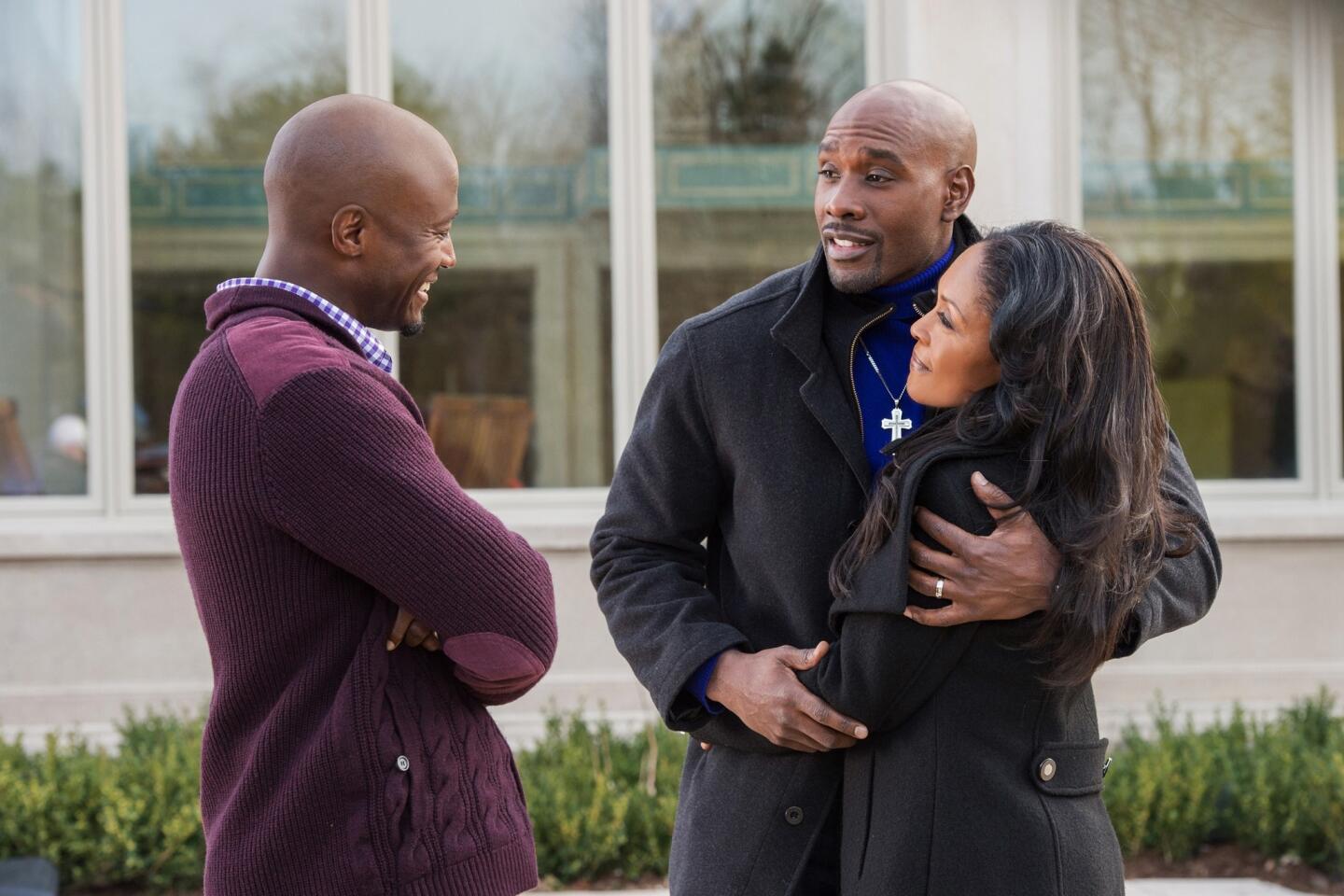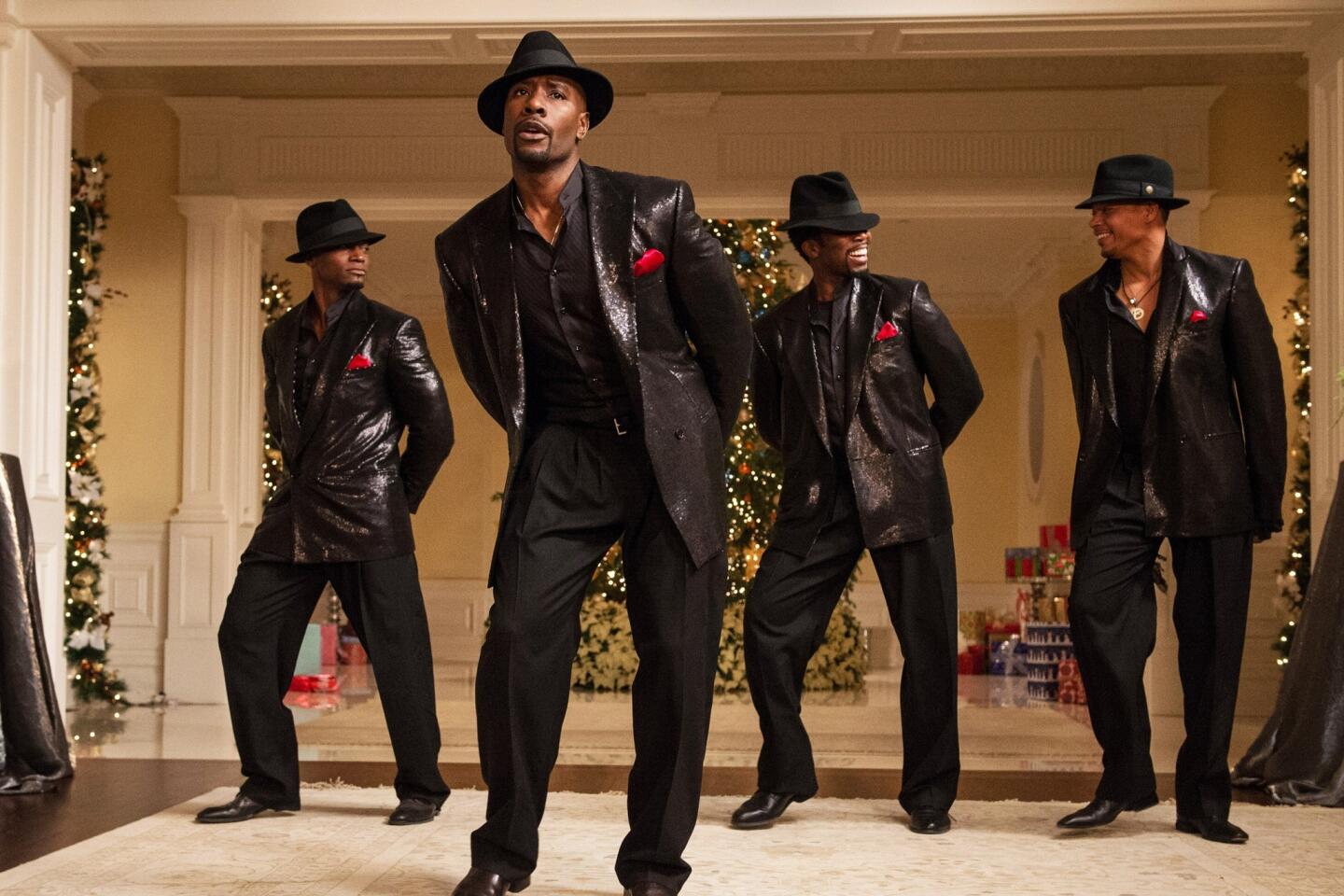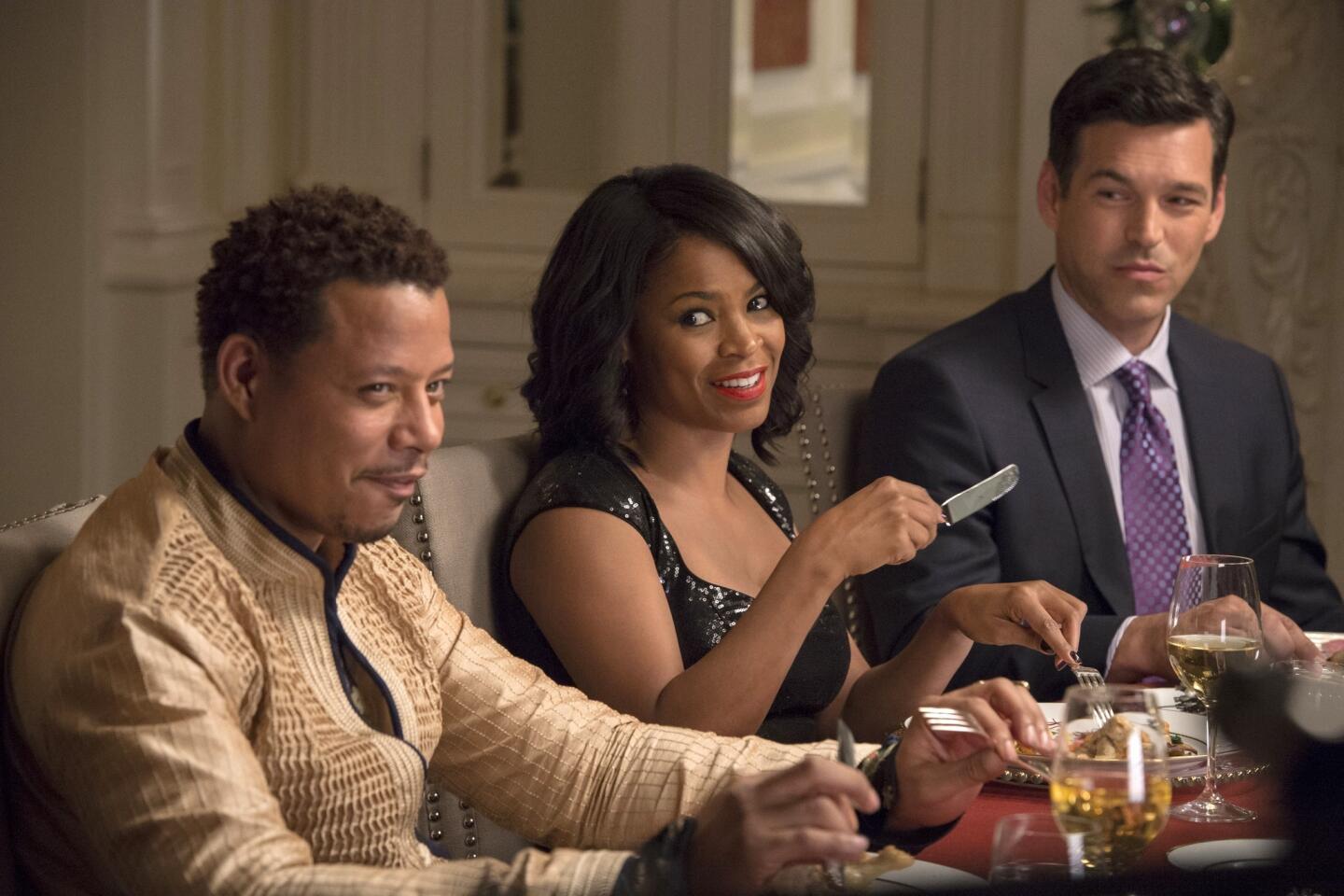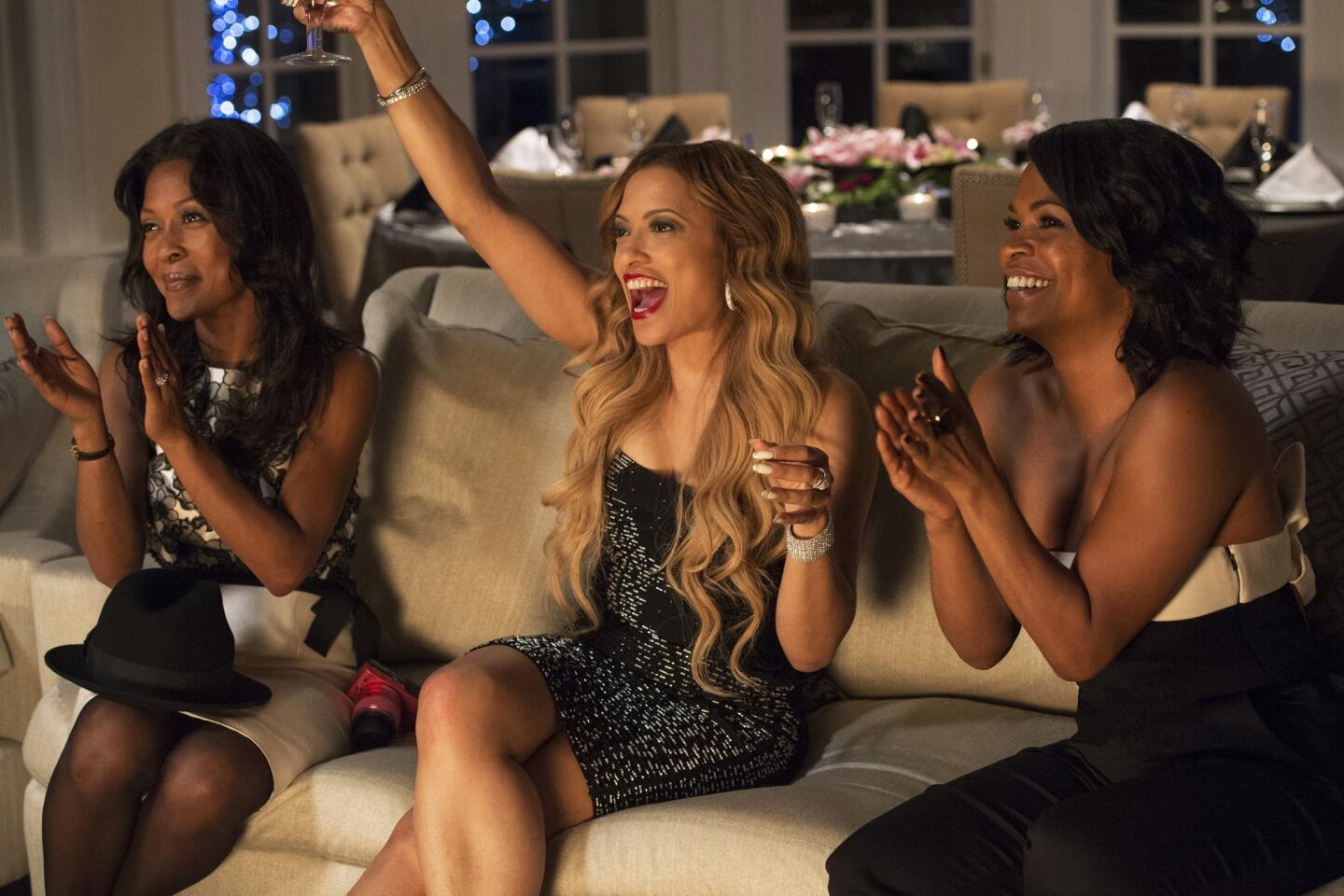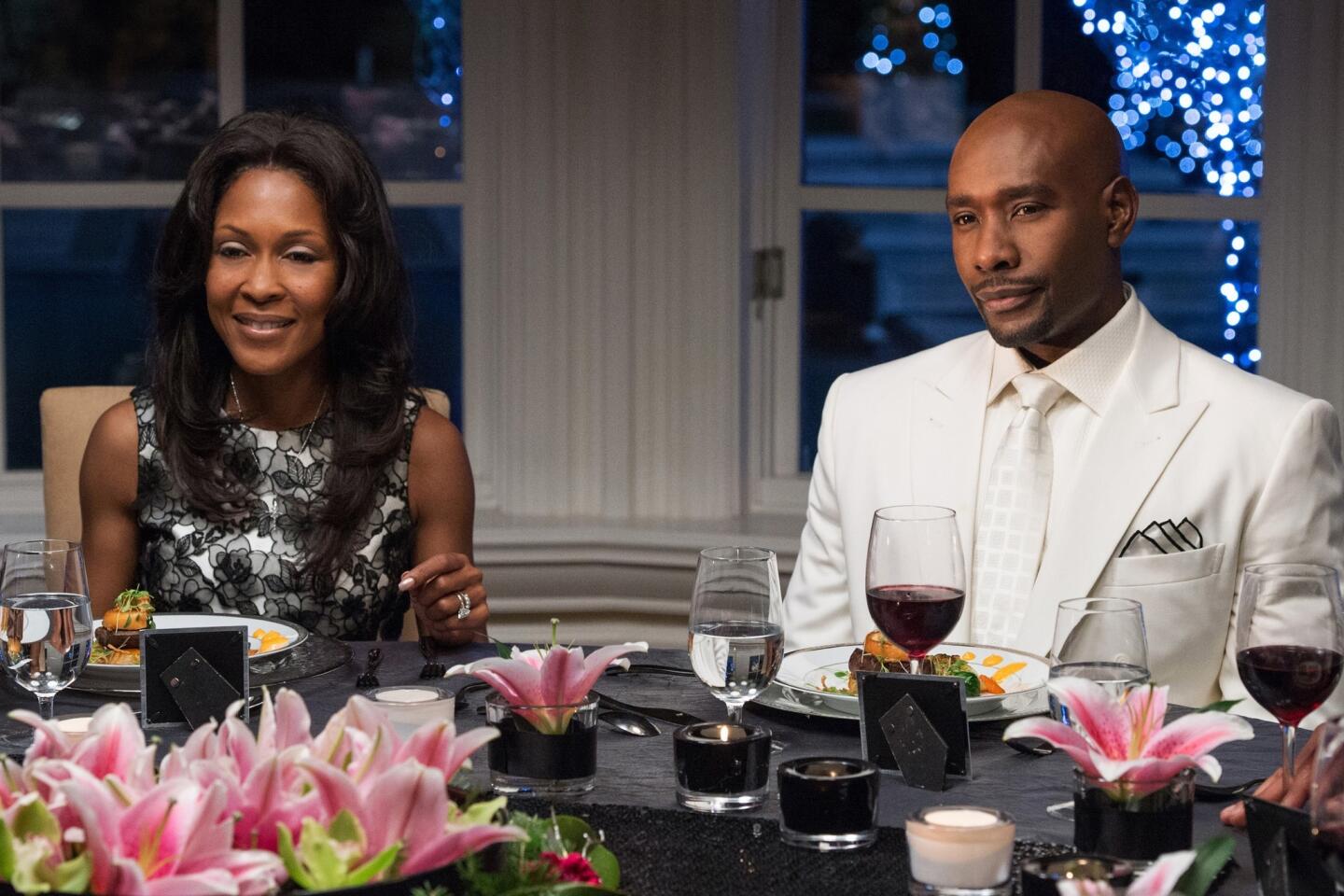‘The Best Man Holiday’: Is the ‘overperforming’ tag racist?
- Share via
It had already been a strong year for films with predominantly black casts—the kind of year that makes bloggers pull out their laptops and write posts about a “new moment.” “Fruitvale Station” was the sensation of the Sundance Film Festival. “The Butler” was a major commercial crossover. “12 Years A Slave” is the art-house breakout of the fall and an early Oscar favorite.
A big holiday hit was hardly needed to make people realize that long-held tropes about movies with black casts—or, for that matter, aimed at black audiences—were bunk.
Yet there was Universal’s “Best Man Holiday” this weekend, ringing up $30.6 million in ticket sales, challenging the juggernaut “Thor” and coming in with a number that would have actually topped the charts on plenty of other weekends.
So the headlines--sometimes stunned, often breathless—followed. The media narrative for black-oriented movies, particularly wide releases, has become familiar. The early tracking is low-ish, the movie comes out and “overperforms,” people are surprised. Lately there’s been a new twist, as people are surprised, or at least annoyed, that anyone is surprised in the first place.
PHOTOS: Scenes from ‘The Best Man Holiday’
“So are we calling The Best Man: Holiday yet another overperforming black film or are we ready to admit that the model is wrong?” tweeted Franklin Leonard, founder of the Black List and an outspoken voice on race and Hollywood. Or Defamer’s blunt headline: “Critics need to stop being shocked that black films do well.”
Some of the surprise was not, of course, about the black issue per se--it was simply to the question of tracking, which was a good bit lower than the final numbers.
But Leonard and the others have a point. For all the ways they tout the movie’s success, many of the assessments are the product of a low-expectation bias. Similar whoa-Nellie reactions followed the release of the Steve Harvey adaptation “Think Like a Man” last year, which topped so-called pre-release estimates with a “Best Man”-like $33-million opening on its way to a $91-million total.
Implicit in these headlines about “overperforming” is a kind of curious, if not actually prejudicial. assumption. It suggests that black audiences don’t come out in numbers and aren’t able to create a hit (and thus, by extension, aren’t worth making films for) in the first place. As director Lee Daniels said when I interviewed him this summer before the release of “The Butler,” “What does it take for people in Hollywood to realize black audiences will come out to see a movie?” “Does ‘The Butler’ need to make $100 million?” It did. The needle still didn’t move.
PHOTOS: Billion-dollar movie club
(Incidentally, Leonard would likely disagree that “The Butler” and “Best Man Holiday” should be grouped together to begin with. He’d be right--to a point—but that’s a subject for another post.)
Still, the eyebrow-raising over the “Best Man Holiday” numbers isn’t without merit, because the numbers do show something that hadn’t really happened before.
Starring solid but hardly mega-star actors and directed by the not-exactly-household name Malcolm Lee, the film can’t be categorized as a personality-driven branded powerhouse a la a Tyler Perry release or even, for that matter, “Think Like a Man,” which had the Steve Harvey imprimatur.)
“Best Man” also can’t be explained away as fish-in-a-barrel holiday fare; most moviegoers aren’t thinking Christmas movies in mid-November.
PHOTOS: Celebrities by The Times
And though it helped that it was working with existing characters, the film can’t be waved aside as an easy money-minting sequel. The original came out 14 years ago, a lifetime ago in most moviegoers’ minds.
The film became a hit mainly by satisfying its audience—a point proved by its rare A+ CinemaScore.
All of this should not, on its face, be noteworthy. But for an industry looking to qualify or extrapolate about elements in its films and the groups that come out to see them—movies shorter than 90 minutes fail with teachers’ unions! Sequels featuring a one-legged bowler skew old!—it is. There’s no way to explain “The Best Man Holiday’s” success except by pointing to “The Best Man Holiday’s” success. It proves its own point.
It’s interesting that the movie is coming at the same time as another film, the Sin City reunion picture “Last Vegas,” is giving the lie to beliefs about a different demographic—older audiences. Nearly half of “Vegas’” opening weekend was over the age 50. And yet the film keeps chugging along, approaching $50 million in domestic box office and continuing to roll.
PHOTOS: Greatest box office flops
Again, we shouldn’t be surprised that people besides young white males come to movie theaters. But for a Hollywood besotted with this kind of conventional thinking, the idea that older audiences are steadily coming out for a film that, let’s face it, isn’t exactly an Oscar contender, this is newsworthy. (Incidentally, “Best Man” upended this thinking too: Nearly two-thirds of its audience this weekend was over the age of 35.)
For those who want to see more movies in the vein of “Best Man”— even if the film isn’t your cup of tea, a more varied selection of screen comedies is welcome when compared to, say, “The Internship” — this breathlessness can be a mixed blessing. It means that we may eventually see more of these movies. But it also links the film to a trend, and thus subject to that trend’s ebb and flow, elevated when one of its films hits and written off when another fails.
Earlier this fall a movie seeking a similar commercial black audience, the romantic comedy “Baggage Claim,” flopped. Prospects are also more dubious for the upcoming “Black Nativity.” Yet it would be silly to say these results have nearly as much to do with a target demographic as they do with a particular film. A mixture of satisfying story, known elements and that elusive cinematic pixie dust makes a movie work for largely black audiences, just as it does for audiences of any color.
ALSO:
‘Thor 2’ tops box office, ‘Best Man Holiday’ tops all expectations
‘Best Man Holiday’ a wobbly weepie, reviews say
Lee Daniels says racism played a role in ‘The Butler’s’ money struggles
Follow me on Twitter at https://twitter.com/ZeitchikLAT
More to Read
Only good movies
Get the Indie Focus newsletter, Mark Olsen's weekly guide to the world of cinema.
You may occasionally receive promotional content from the Los Angeles Times.
